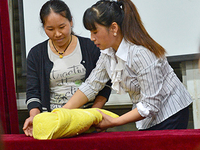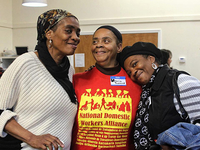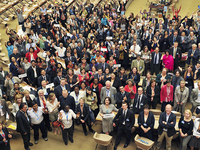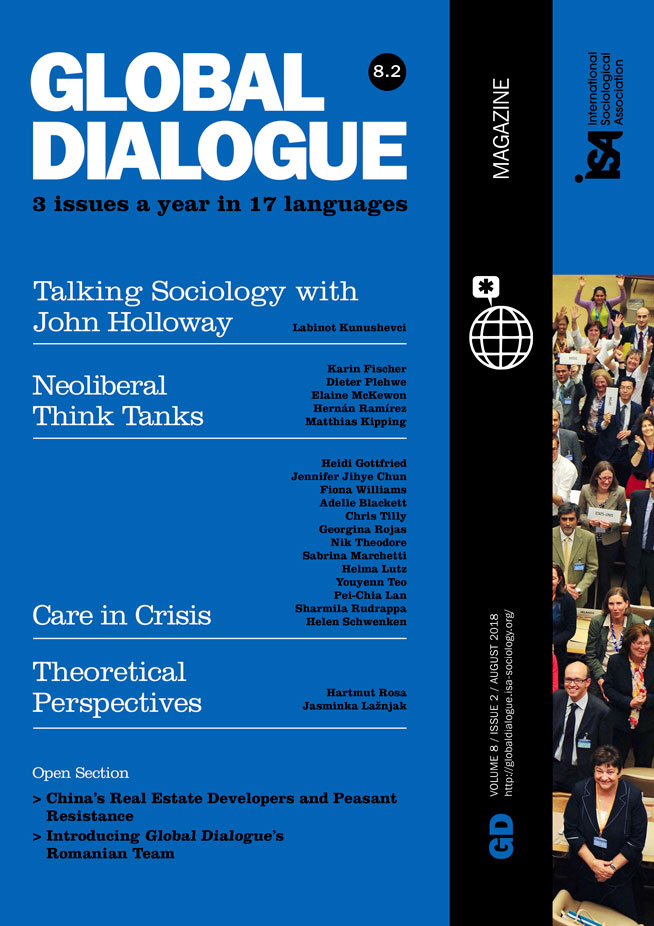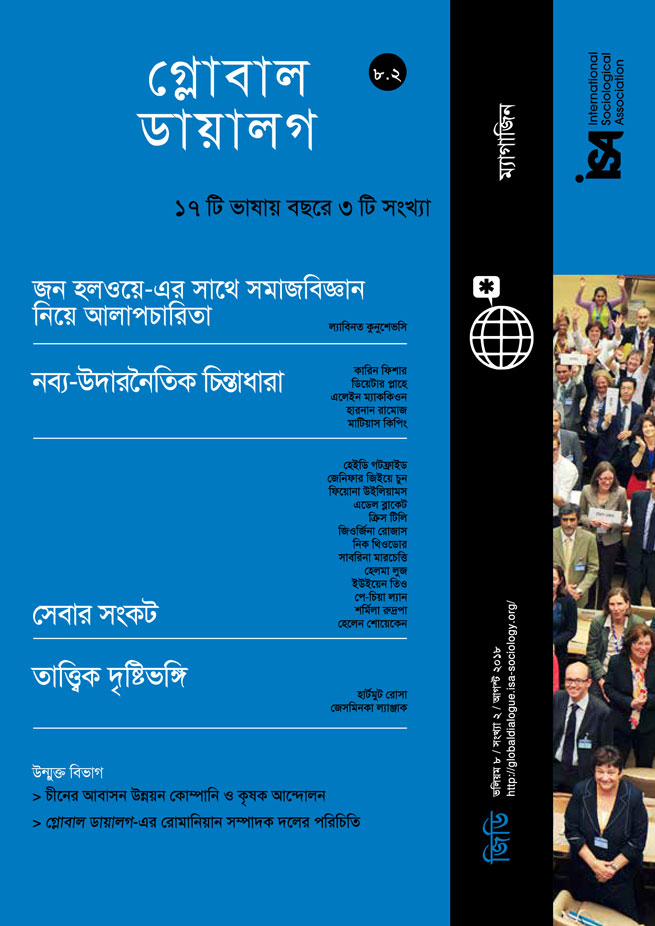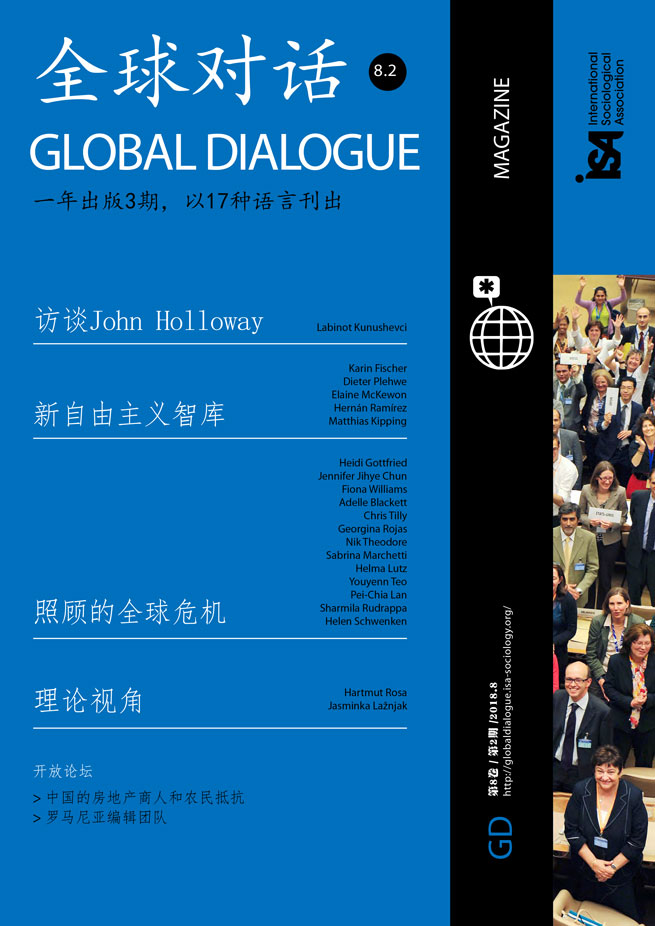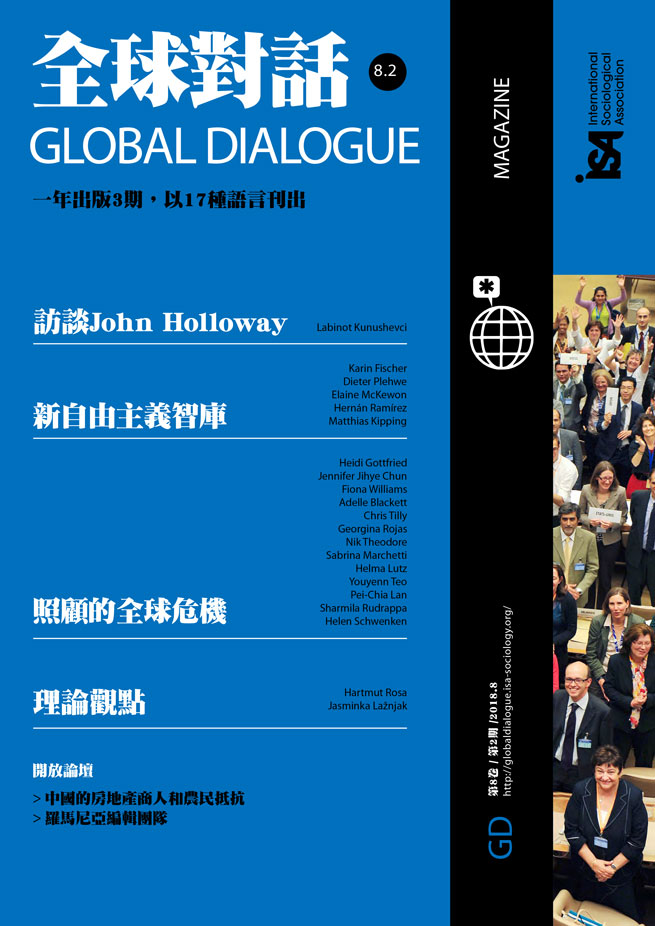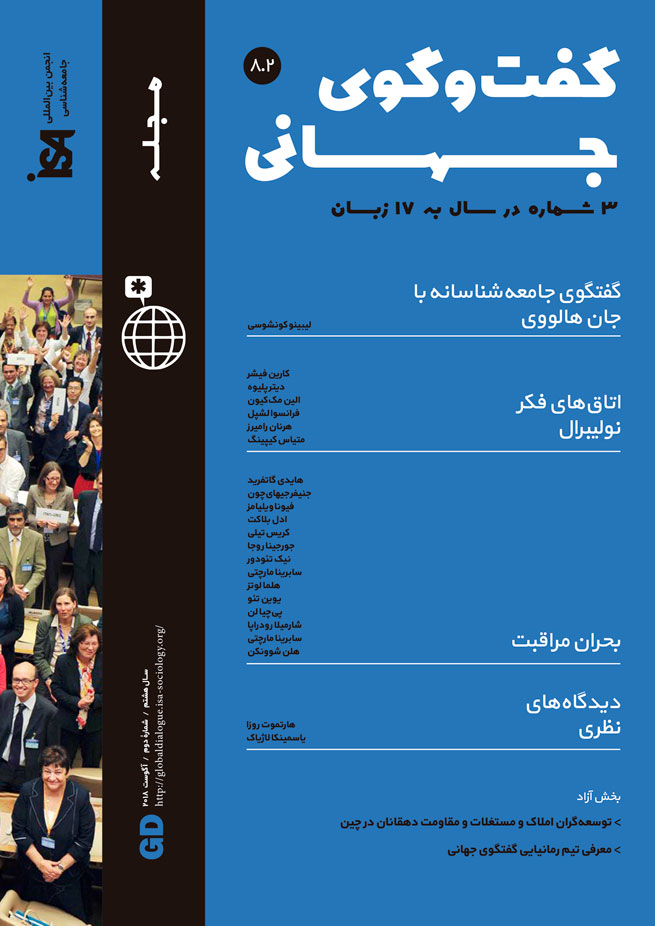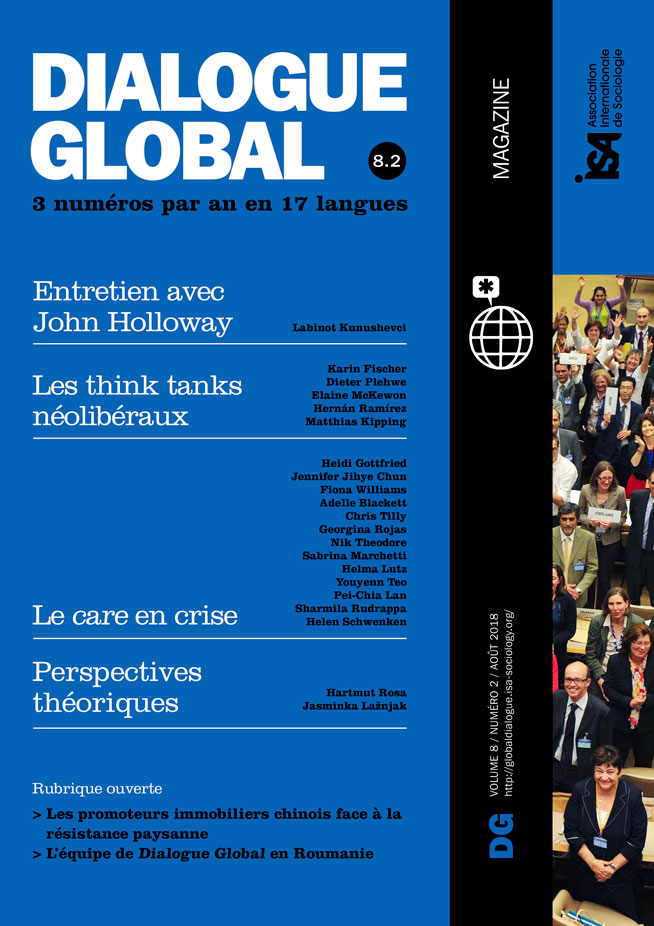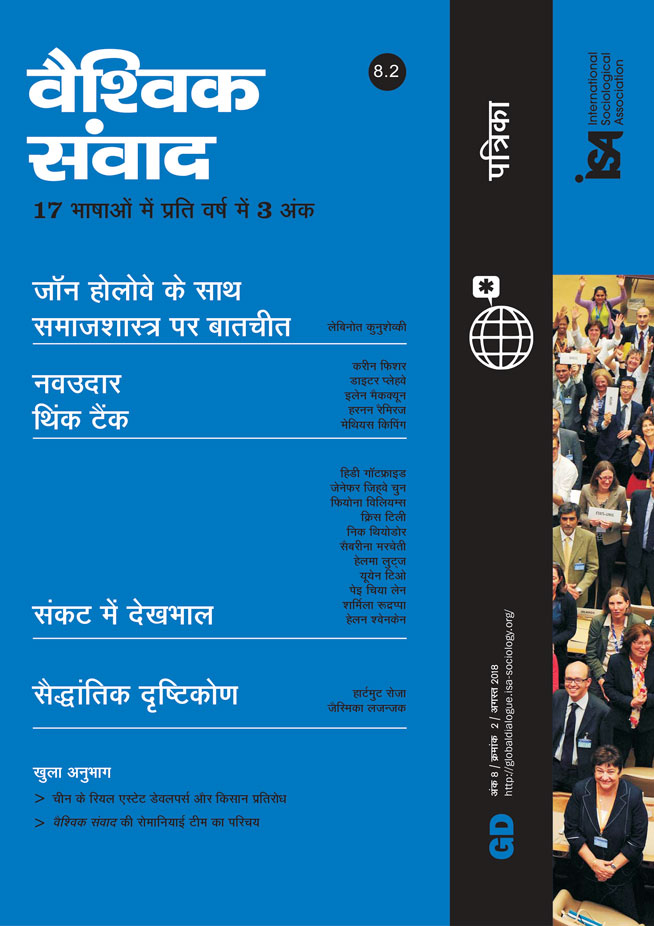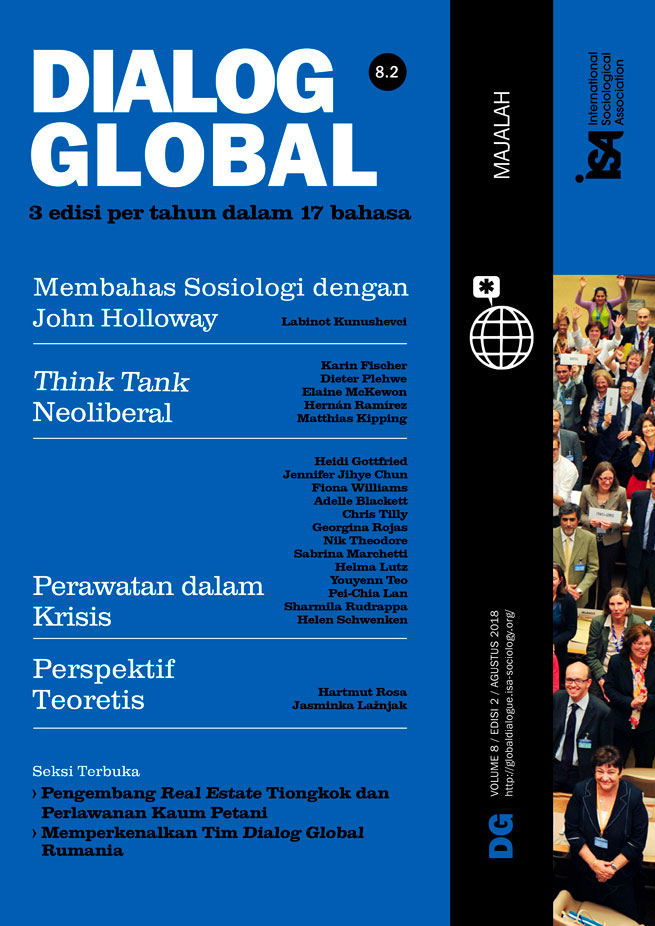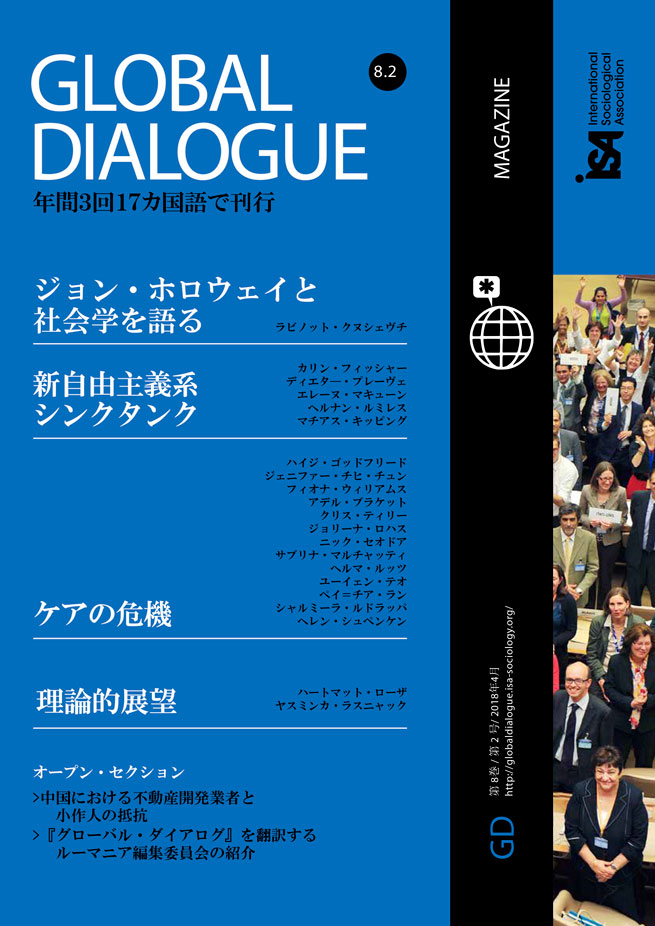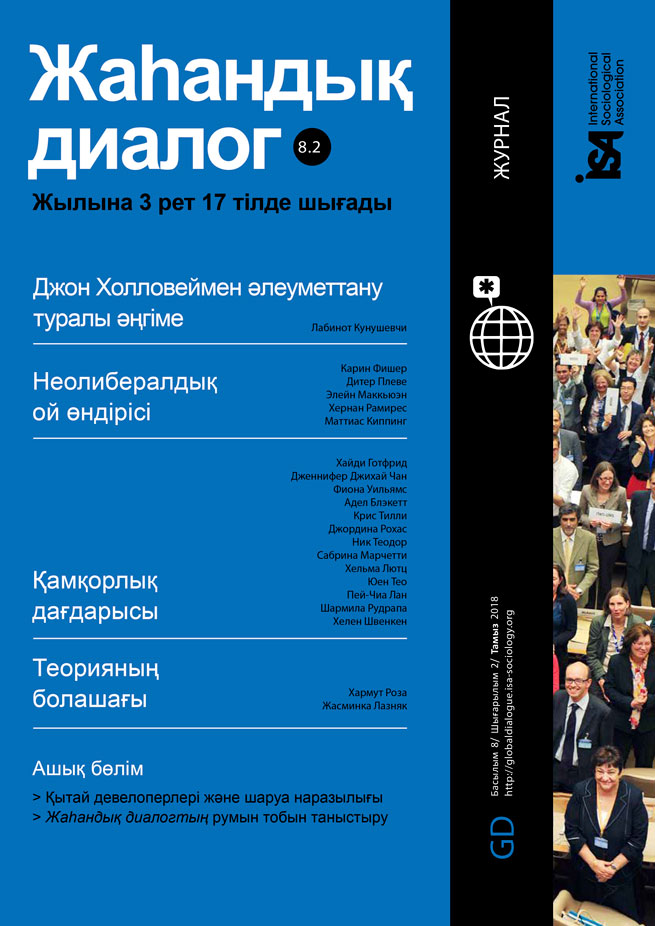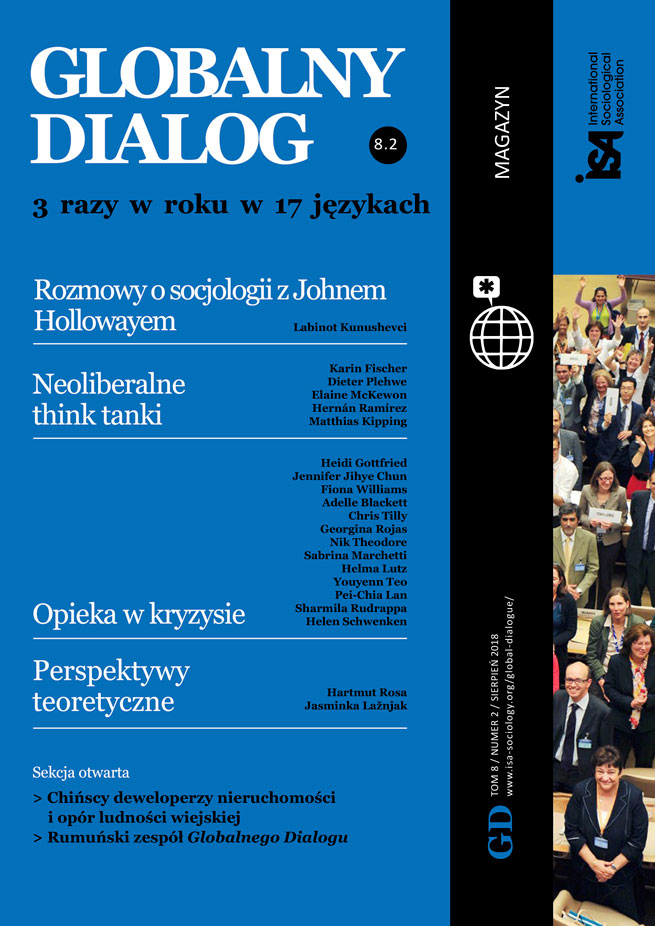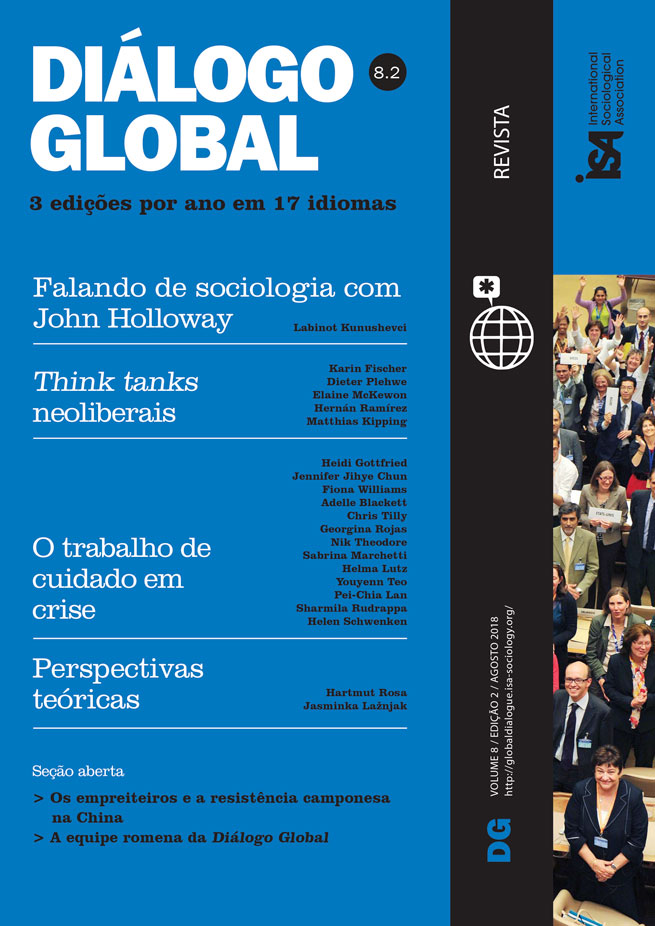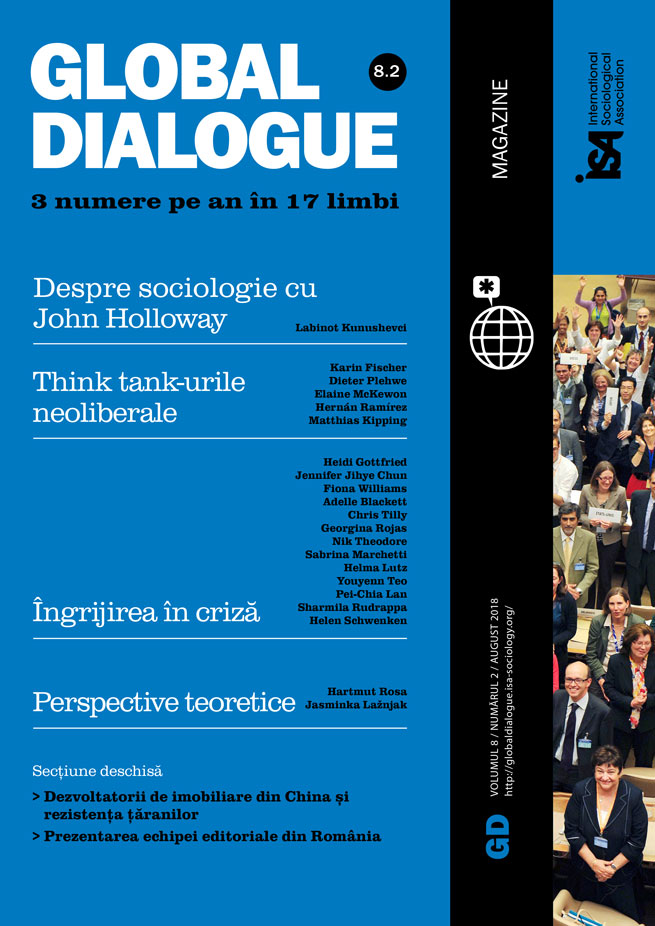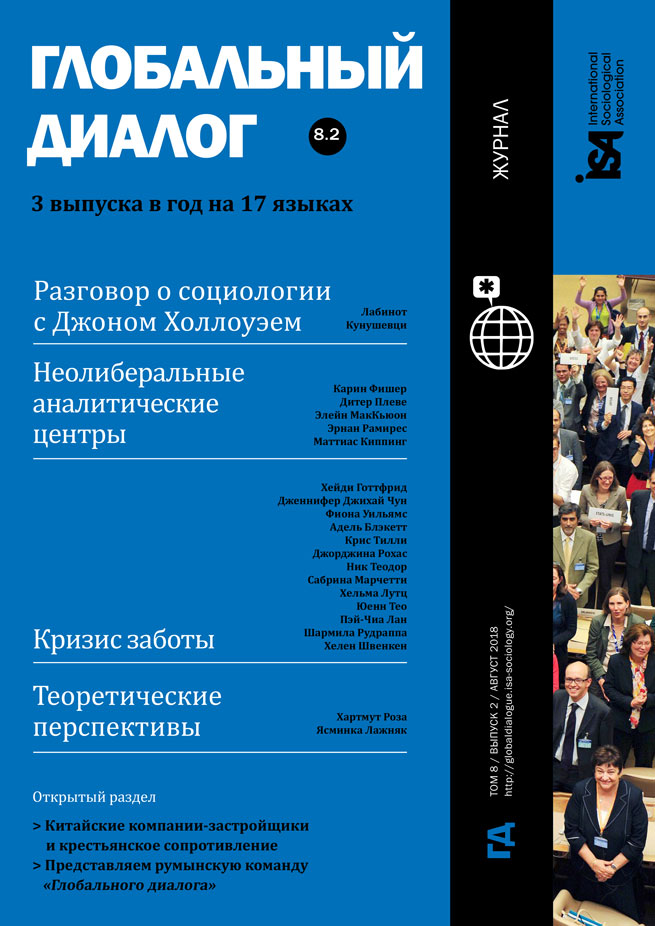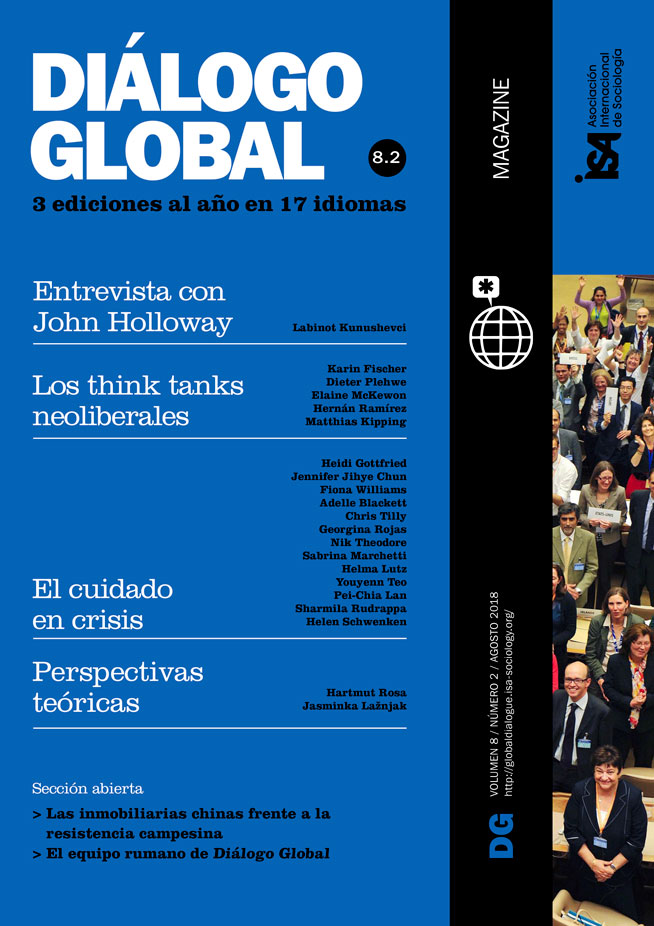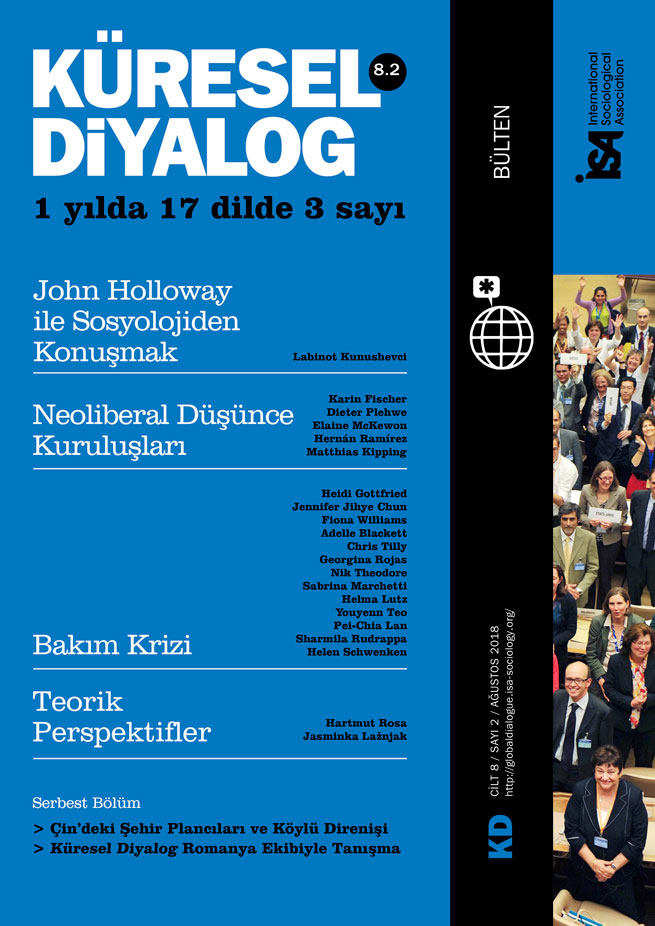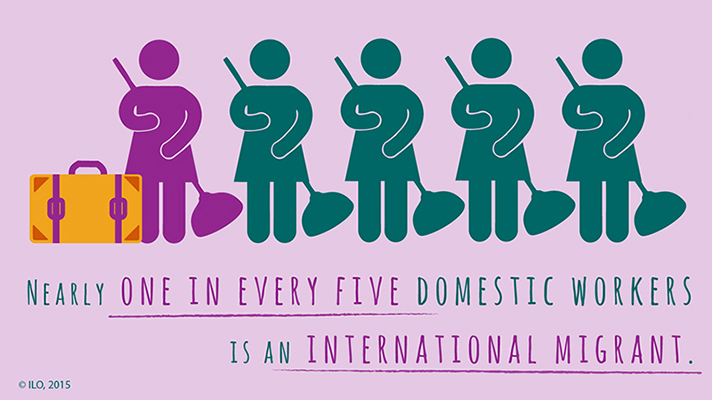The increase in migration – in which half of the world’s 223 million migrants are now women – signals the different ways that care has become a global and transnational issue. Many women who migrate from poorer or fragile states find work in paid care, cleaning, or domestic service, looking after children, older people, and households in richer countries. They move from Global South to North as well as within both North and South. In parallel to these global care chains is the increased transnational recruitment by states and private agencies of nurses and doctors from low- and middle-income countries to work in the care homes and hospitals of the health services in the richer world. In the process, those migrant workers’ care commitments to their older parents or children become stretched over continents. At the same time, the care industry has become a big international business as private care providers move their operations across the globe. In a different move, financial organizations transfer migrants’ remittances back home. For some lower-middle income countries, such as the Philippines, nurses and care workers constitute a major state-led “export” and their country’s largest source of foreign currency.
This transnational political economy of care reflects and reinforces an accumulation of changes and crises affecting social, economic, and geopolitical inequalities. First is the global increase in women’s involvement in the labor market. In developed countries this is marked by a shift away from the “male breadwinner” model to one which assumes that all adults, men and women, are in paid work. In poorer regions of the world, the destruction of local economies, unemployment, and poverty have pressed women into assuming a greater breadwinning role.
The dynamics of changing care needs
In developed welfare states care has become a central social, political, and fiscal concern as ageing societies and declining fertility have increased the ratio of those needing support. However, these indicators of a care crisis are no less pressing in developing countries, where at its extreme – for different countries experience this in different forms – in Africa, AIDS, chronic illness, natural disasters, and a high child dependency ratio place enormous burdens on women who are expected to care and earn with very little infrastructural support. Migration, often into domestic and care work, is one way that women can find earning opportunities even though this intensifies the caring responsibilities of those left behind.
At the same time, developed states are cutting back on their social expenditure and looking for cost-effective ways of meeting their care needs. The private market has increasingly become a central feature of care provision even in those welfare states with high public investment in care, such as Sweden. This involves contracting out state or local authority services to the private sector and providing families, disabled and older people with tax credits, vouchers, or benefits to help them pay for assistance from the care labor market. Where this is unregulated or poorly regulated, and this is especially so for work in private households, those with the least bargaining power fill the gap: local working-class women, migrants from rural areas (as in China), and, increasingly, transnational migrant women workers. They are often overqualified – in the European Union, migrants are more than twice as likely to be overqualified as their native-born counterparts. With fewer citizenship rights to housing and social protection, they are more subject to precarious, low-paid, and home-based work.
However, this relatively new phenomenon is also superimposed upon historical inequalities, that is, the ongoing devaluation of care labor as women’s “unskilled” work combined with a persistent racialized servitude in which minority ethnic women have traditionally been recruited privately or by welfare states into domestic and care work. While the work/life balance problems faced by many women can be resolved by outsourcing care and cleaning to women from poorer classes or countries, it does little to alter the enduring gendered divisions of labor in the household.
The intersection of care with other global crises
The transnational movement of care labor intersects with other global crises. First, the effects of austerity following the global financial crisis have intensified states’ search for more cost-effective care provision. In Spain, where two-thirds of care workers are migrants, austerity’s squeeze on household incomes led to a decrease in the hours and pay of migrant workers. Remittances sent home have been halved. Second, the dependence of higher-income countries on migrant workers co-exists with a rise in anti-immigration xenophobia. The political debates about the refugee crisis are shaping changes in immigration policies which affect migrant care workers. These policies are becoming more restrictive not only toward “unskilled” workers (into which category care workers fall) but also in limiting migrant eligibility to basic welfare provision. Many of the political debates set state sovereignty and economic cost against human rights and humanitarianism. Indeed, in a Polanyian sense, all these crises – of finances, of care, and those facing migrants and refugees – render their subjects as fictitious commodities and jeopardize security, solidarity, and sustainability.
What to do? Transnational and international political activism by grassroots domestic worker organizations led in 2011 to the International Labour Organization’s Convention for the Rights of Domestic Workers. Other global strategies include the World Health Organization’s 2010 endorsement of an ethical code for countries to use in their recruitment of migrant health workers. These are important, but the issue of migrant care work needs to go beyond this. Care and migration are both issues of human rights and sustainability. Free movement, the rights of citizenship, as well as hospitality for those fleeing violence are essential. Care requires the recognition that there is a fundamental human right to be able to receive and to provide care. The predominant logic of policy-making focuses on productivism, the facilitation of markets, and on drawing women into the labor market where care needs have to be organized around paid work. A longer-term perspective requires care to be central to strategies for global social justice, to be recognized as a collective social good, and, like migrant labor, central to national and global economies, to well-being, interdependence, and human sustainability.
Fiona Williams, University of Leeds and University of Oxford, UK, and member of ISA Research Committee on Poverty, Social Welfare and Social Policy (RC19) <J.F.Williams@leeds.ac.uk>


